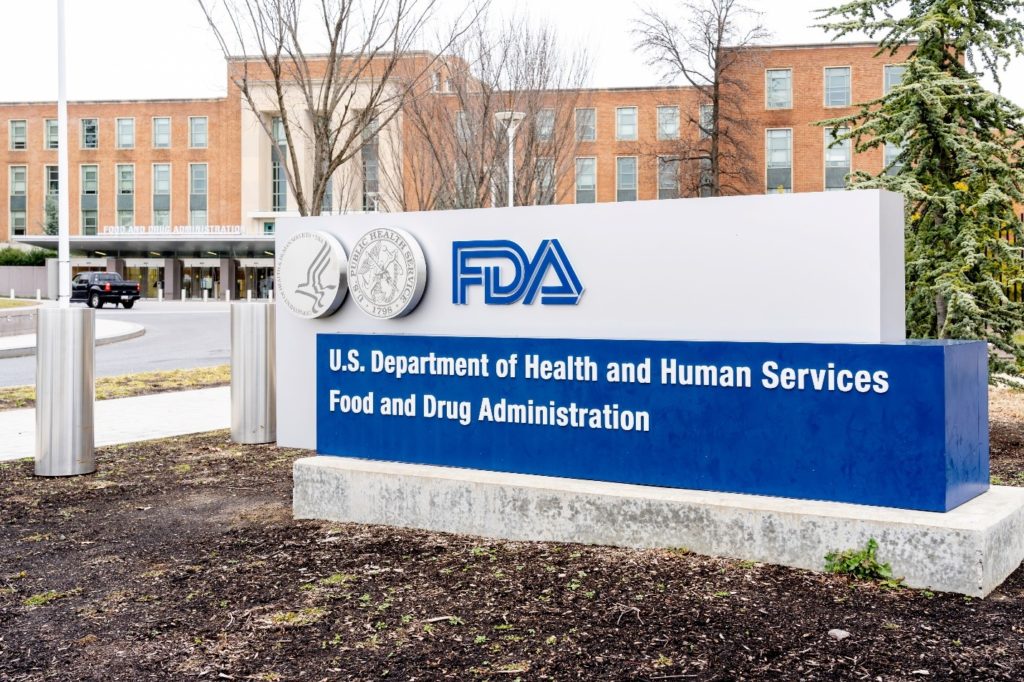The US Food and Drug Administration (FDA) has issued a warning for Secura Bio’s Copiktra (duvelisib) after a clinical trial found the drug was associated with a higher risk of serious side effects including a “possible” increased risk of death.
The trial found Copiktra was associated with a higher risk of infections, diarrhea, inflammation of the intestines and lungs, skin reactions and high liver enzyme levels in the blood.
The FDA announced the warning in a FDA Drug Safety Communication in which it said it had notified the public of the risks as it continues to “evaluate the safety of Copiktra.”
The drug was approved in 2018 for the treatment of adult patients with relapsed or refractory chronic lymphocytic leukemia (CLL) and small lymphocytic leukemia (SLL) who have failed to respond to at least two prior therapies.
Secura Bio bought the commercialization rights for duvelisib from Verastem Oncology (who picked it up from Infinity Pharmaceuticals and AbbVie after the two abandoned it) in September 2020 for $70 million and additional payments based on milestones and royalties.
In the safety announcement, the FDA said it is planning to hold a future public meeting to discuss the clinical trial findings and “whether Copiktra should continue to be prescribed for patients.”
The FDA has advised patients to speak with their health care provider about the risks and benefits of taking the twice-a-day oral pill.
Copiktra is a PI3 kinase (PI3K) inhibitor that blocks cancer cells from multiplying.
Duvelisib received orphan drug designation in the US for the treatment of peripheral T-cell lymphoma (PTCL) in 2019.
Along with the initial CLL and SLL approvals, Copiktra was also approved for the treatment of relapsed or refractory follicular lymphoma (FL). In April 2022, the FDA revoked the FL approval at the request of Secura Bio. This is because the company declined to conduct confirmatory trials for the drug after deciding that the cost and timing of postmarketing requirements was “no longer merited” given the “current treatment landscape for FL patients in the US.”
To determine the long-term safety of Copiktra, the FDA required Secura Bio to submit final five-year survival results from the Phase III, randomized, open-label DUO clinical trial evaluating the drug. The trial involved 319 patients with CLL or SLL who received a previous therapy to which they did not respond or stopped responding.
The final survival data, with a median of 63 months follow-up, showed a possible increased risk of death with Copiktra compared to the anti-CD20 monoclonal antibody ofatumumab, which is used for the treatment of CLL. Ofatumumab targets early-stage B lymphocyte activation. Compared to ofatumumab, the rate of serious side effects, dose modifications and deaths resulting from the side effects were higher among patients who took Copiktra (50 percent versus 44 percent for Copiktra and ofatumumab, respectively). The median overall survival among patients who received Copiktra was 52.3 months compared to 63.3 months for those that got ofatumumab.
The FDA noted that the safety findings were similar for other drugs in the same PI3K inhibitor class — these were discussed at an advisory committee meeting consisting of an independent panel of experts in April 2022.
The PI3K inhibitor woes are not unique to Secura. At the beginning of the year, Gilead withdrew its PI3K inhibitor Zydelig (idelalisib) for relapsed FL and SLL after a Phase II study showed only 54 percent of patients with FL and 58 percent with SLL achieved objective responses. Gilead said enrollment in confirmatory trials had become a challenge, leading the company to contact the FDA to withdraw the indications in the US.
Meanwhile, the future of Bayer’s PI3K inhibitor Aliqopa (copanlisib), which received accelerated FDA approval in 2017, is hinging on results from the confirmatory Chronos-4 trial that are expected in September.












Join or login to leave a comment
JOIN LOGIN